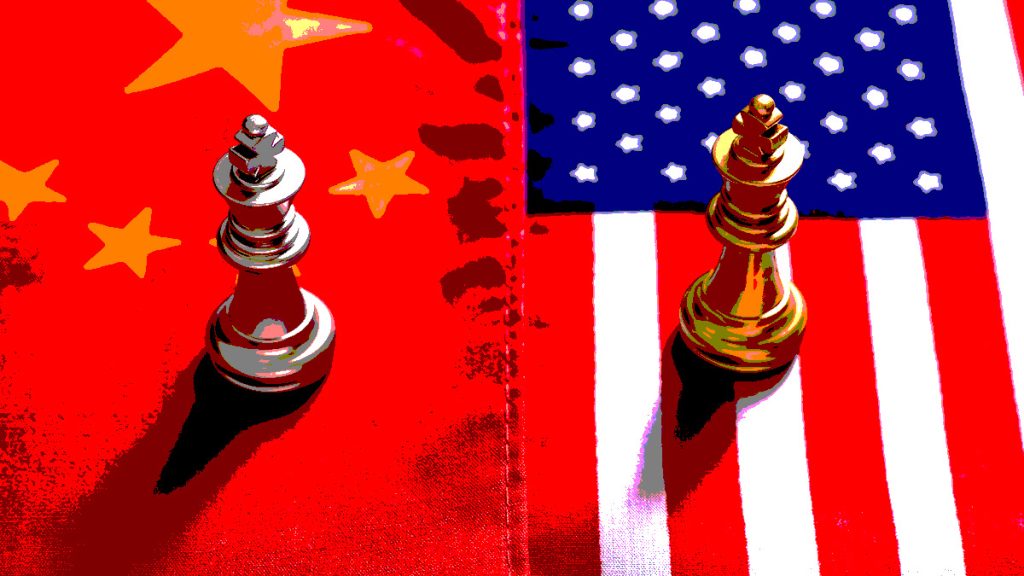
The US-China trade war has been raging for a few years now, with both countries imposing tariffs on each other’s goods, creating a ripple effect throughout the global economy. One sector that has been impacted by this conflict is the global telecom industry. As the US and China continue to engage in a technology race, the telecom industry is becoming an essential battleground, with both countries vying for dominance. In this article, we’ll explore the impact of the US-China trade war on the global telecom industry and India’s position in the market.
Who’s benefiting?
The US and China have been engaged in a trade war for several years now, and it has had a significant impact on the global telecom industry. The two countries are the world’s largest economies and have long dominated the global telecom market. However, the trade war has led to a decline in the industry’s growth, with many companies facing supply chain disruptions, rising costs, and reduced demand.
One of the main reasons for the trade war’s impact on the telecom industry is the ban on Chinese telecom giant Huawei by the US government. The US has accused Huawei of spying on behalf of the Chinese government, and as a result, several countries, including India, have banned the use of Huawei equipment in their telecom networks. This has led to a significant loss of revenue for Huawei, which was the world’s largest telecom equipment provider until the ban.
As the US and China continue to engage in a technology race, the telecom industry is becoming an essential battleground. The US is pushing to develop its 5G network and has encouraged its allies to exclude Huawei from their telecom networks. China, on the other hand, is aggressively promoting its 5G technology and has been investing heavily in the development of the technology. The conflict has created a great deal of uncertainty in the industry, with many companies unsure of how to proceed.
India has emerged as a major player in the global telecom market in recent years, with a rapidly growing economy and a large, tech-savvy population. The country is also a potential major power competitor to both the US and China, which may explain why both countries are interested in India’s position in the market. The US has been trying to strengthen its ties with India and has encouraged the country to exclude Huawei from its telecom networks. China, on the other hand, has been investing heavily in India’s telecom industry, with several Chinese companies setting up operations in the country.
Despite the US-China trade war’s impact on the global telecom industry, India’s position in the market remains strong. The country has a large and growing market, and many telecom companies are looking to invest in India. As well as India’s legacy of great education coupled with lower salaries for skilled labor has played a significant role in the country’s ascent in the global economy. India has a long-standing tradition of valuing education and placing a high premium on knowledge and expertise. This has led to a large pool of highly educated and skilled professionals, who have been instrumental in driving the country’s economic growth and development.
Yet, while India’s skilled labor force is highly valued and in demand around the world, salaries for skilled workers in India remain comparatively low. This is due in part to the country’s large population and the high level of competition for jobs, which has created a surplus of skilled labor and driven down wages.
Final thoughts
The US-China trade war has had a significant impact on the global telecom industry, with many companies facing supply chain disruptions, rising costs, and reduced demand. The conflict has created a great deal of uncertainty in the industry, with many companies unsure of how to proceed. India has emerged as a major player in the global telecom market, and its position remains strong despite the trade war’s impact. While the real motive behind the trade war remains unclear, India’s rising dominance in the supply chain may be a factor. As the conflict continues, it’s essential for companies to stay informed and adapt to the changing market conditions.
Inside Telecom provides you with an extensive list of content covering all aspects of the tech industry. Keep an eye on our Connectivity section to stay informed and up-to-date with our daily articles.